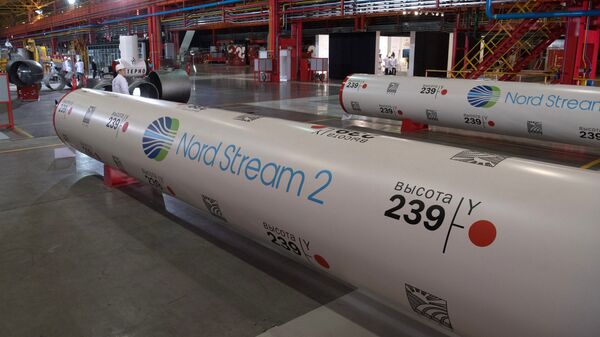MOSCOW (Sputnik) — In April, Gazprom's subsidiary Nord Stream 2 AG signed a deal with French Engie, UK’s Royal Dutch Shell, Austria’s OMV and Germany's Uniper and Wintershall, which agreed to provide part of long-term financing of the gas pipeline project, estimated at 9.5 billion euros ($10.6 billion). On June 15, the US Senate approved new sanctions against Russia, in particular, against large investors in the construction of Russian export pipelines or those providing such projects with services, technology and information support.
"The principle of American sanctions on a project that is not in the US, that does not involve US actors, that is not in dollars — the Europeans are right to mobilise on this subject. It is an interference in the affairs of European countries that is unacceptable," CEO of Engie Isabelle Kocher was quoted by the Financial Times as saying.
Kocher said she hoped the EU leaders had explained the US government and president at G20 summit the extent to which the idea of sanctioning Nord Stream 2 is incomprehensible.
The US recently started liquefied natural gas exports to some European countries and is eager to strike long-term contracts, and by limiting Russian supplies. Nord Stream 2 AG said the US sanction threat was an attempt to undermine the position of a future commercial competitor.
The Nord Stream 2 project presumes the construction of two gas pipelines with a combined annual capacity of 55 billion cubic meters of gas. The new pipeline is planned to be laid along the existing Nord Stream pipeline route from the Russian coast through the Baltic Sea, on to a hub in Germany.



